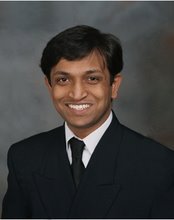The recent incidence of internet trolls harassing the actress Anushka Sharma after Virat Kohli's great performance in the T20 World Cup cricket match against Australia has raised has raised some valid concerns on what is the appropriate way to behave online. The comments of trolls are absolutely condemnable and the way Virat responded later shaming the trolls is the right thing to do. While there is no shadow of doubt in this case regarding what is right and what's not, in some other situations things could be tricky because it is hard to separate the right from wrong.
There is a critical trade-off between the imposition of political correctness in speech (e.g. how to refer women or other marginalised groups) and the biases that get unconsciously created and strengthened in the minds of people who speak or hear such loose-talk. We don’t want to put restrictions on people's right to free speech (e.g. the comedians, journalists and artists) but at the same time it is painful to see that dumb and trolling statements made by regular folks without fully understanding how that perpetuates the biases and hatreds could really hurt the ideals our societies claim to be striving for - especially when such statements are part of the environment that nurtures kids and youth.
While I have no clear idea of how this dilemma can be resolved through a set of codified rules (or law for that matter) but the experience tells us that the wise minds (ones with a mature mindset or thoughts) have a much better sense of judgment to navigate such situations. At the same time, it is easy for zealots to paint people trying to manage this trade-off better as hypocritical folks, because they don’t appear fully in favour of free speech they claim to revere.
The mature minds that could exercise good judgment (and restraint on their own speech) in such complex situations are developed through education. Such an enlightening education happens through the life experiences. The problem is that each individuals experiences are different from others, so how can we be assured that the learnings (i.e. experiences) of all individuals would include or certainly lead to a minimal common set of values and beliefs.
I believe that we learn anything because we need to use that particular knowledge or skill to solve a problem that we want to solve, or achieve whatever objective we have set in our minds. So then a good education or society has to ensure that everyone has to tackle a somewhat similar set of situations to realize the value of things like diversity, how humans (or kids) learn and build their understanding of the world around them and how all these things fit into the big picture of sustainable progress of our species in the universe.
Then we could have a hope that those who believe in such a future (and hence can sacrifice some of today's desires for it), would start sharing the similar set of values. Coming back to where we started from, this free-speech dilemma and many other similar dilemmas could only be solved through better education for everyone (see we are already sounding like the propagandists, or maybe it's just a war of different propagandas - ours v/s theirs or some others').
Anyway, for the action oriented folks the interesting question to ponder upon is: In terms of implementation, how the information revolution can offer help/hope for providing such an education to all?
